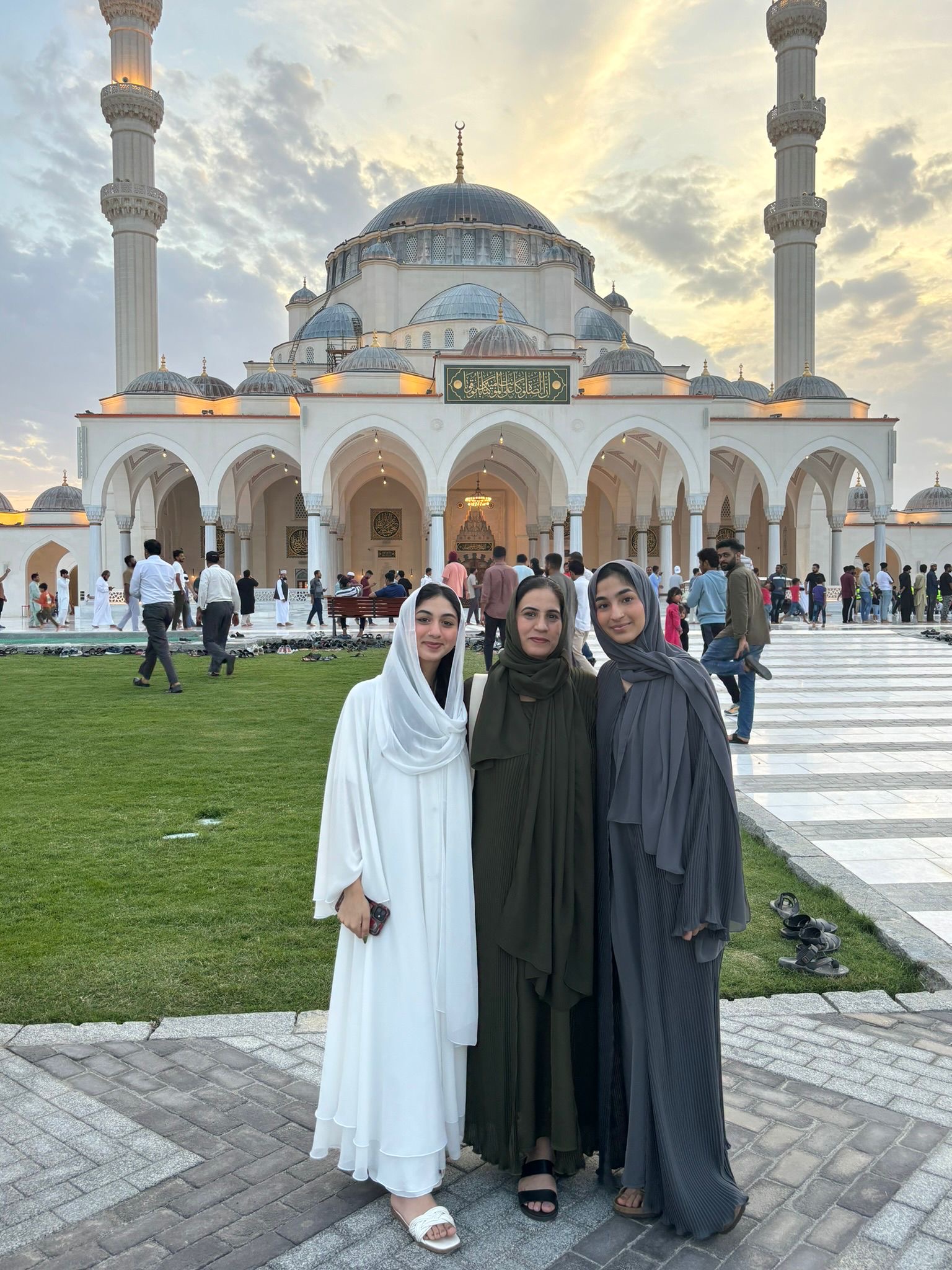American Youth Experience Fasting in Abroad
By Eshal Khan
July/Aug 2024

I have spent every Ramadan of my life in the U.S. However, this year we were fortunate to have our Indiana University Spring Break coincide with the start of Ramadan. My sister and I really wanted to spend at least part of the holy month in a Muslim country. It took us quite a lot of back and forth with our parents, but we stood our ground.
Despite hearing the usual “Fasting while traveling is hard.” “It’s going to be tiring.” “You won’t have much time there,” we persevered. Our first Ramadan in Dubai was a memorable experience.
The cultural environment in that single week offered a small glimpse of what my family and I were missing out on. Fasting with the majority population, staying up, eating sehri, going to the mosque and every other tradition I had with my small group back home was a largely shared experience of what felt like everyone in the country. We’d all stay up together and go on walks late at night, and would see many others doing the same thing.
My favorite iftar food we had there would have had to be shawarma and my favorite sehri food would have had to be the dates they had there. My mom was so grateful to enjoy iftar with her brother after 24 years.
Some restaurants would be open nearly all night, and everyone would be there eating and laughing together. At maghrib time every store would close, thus allowing a gap for dinner and prayer. The adhan would play at every prayer nationwide. Dates and water were always being offered in case people didn’t have one to break their fast. All these things fostered a sense of collectivity and a real feeling of belonging in a large group, something I did not feel in the U.S.
I felt like Dubai bent over backward to make accommodations for Ramadan, but it was done so seamlessly that it felt like no effort was involved. Scheduling life around fasting and prayer times showed the deeply rooted importance of tradition and faith. Reflecting on my experience, I feel like I have a newfound appreciation for my religion.
Ramadan in the U.S. has always been an exhilarating experience and creates an atmosphere of excitement with sometimes being able to skip classes and other shared traditions that helped build a community and sense of belonging among the small Muslim population of Plainfield, Ind.
Yet the fact that the community itself is so small can lead to a feeling of displacement at times when the personal significance of Ramadan is not widely recognized in the town itself. Islam is a minority religion in this country, so celebrating it sometimes can be lonely or make you feel out of place when talking with school friends. Eid is never a day off (unless it falls on a weekend), yet this was the only kind of Ramadan and Eid we’d ever known.
Both experiences were vastly different and offered a contrast in cultural immersion and communal participation. Seeing people band together in Dubai and celebrate with such love for the holy month made me determined to extend those characteristics into Ramadan here in the U.S. I think ways that I would continue bringing some attributes to America would be by hosting more iftars and sehris with my friends and family. I would also try to make Ramadan feel less like a chore and more like something that I can shape my life around. Indulging in religion and prayer feels very easy during Ramadan, so taking advantage of that boost has become very important to me.
Eshal Khan is a Junior at Indiana University. She is studying neuroscience and likes to run in her free time.
Tell us what you thought by joining our Facebook community. You can also send comments and story pitches to [email protected]. Islamic Horizons does not publish unsolicited material.
